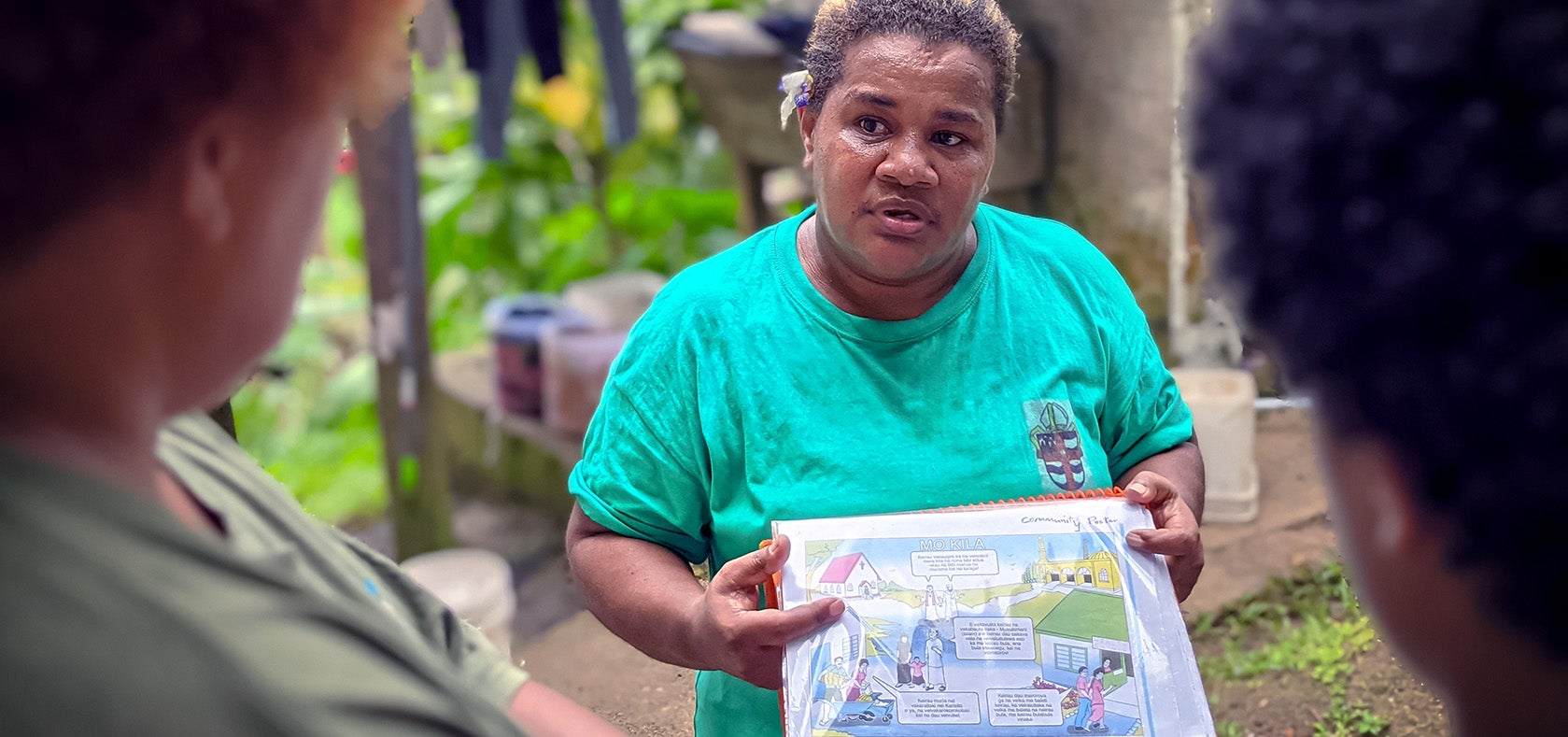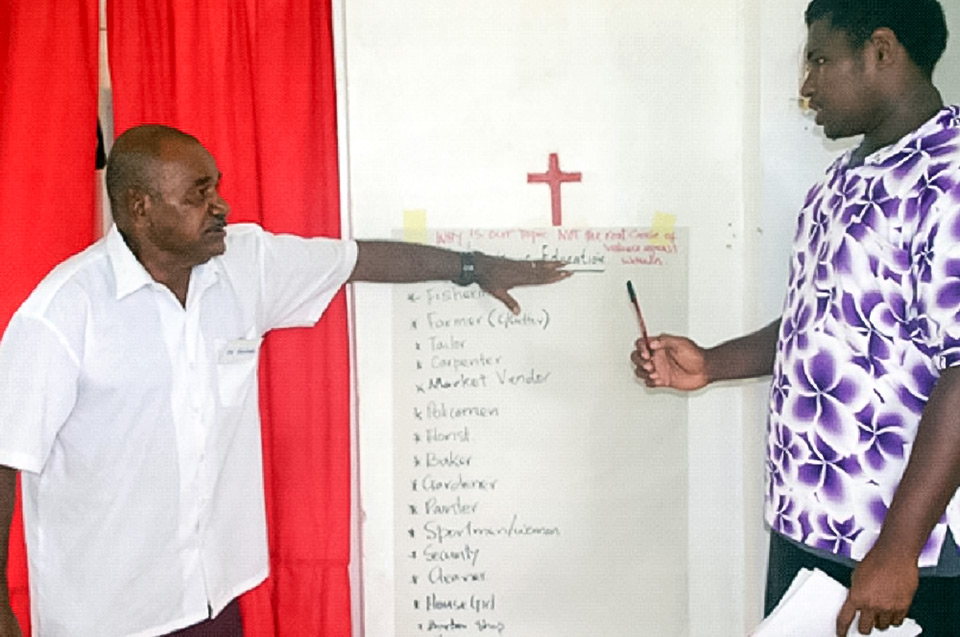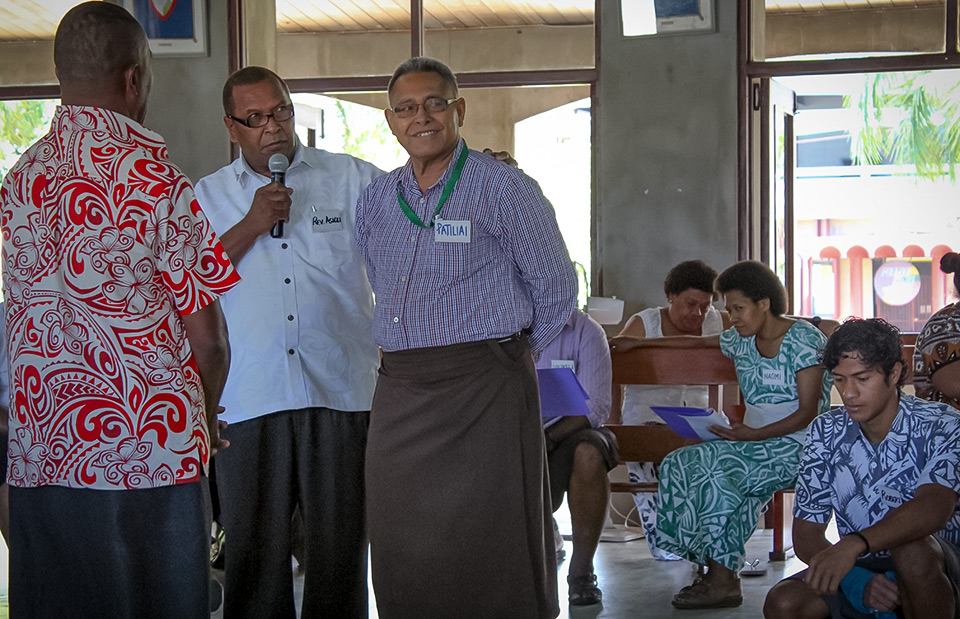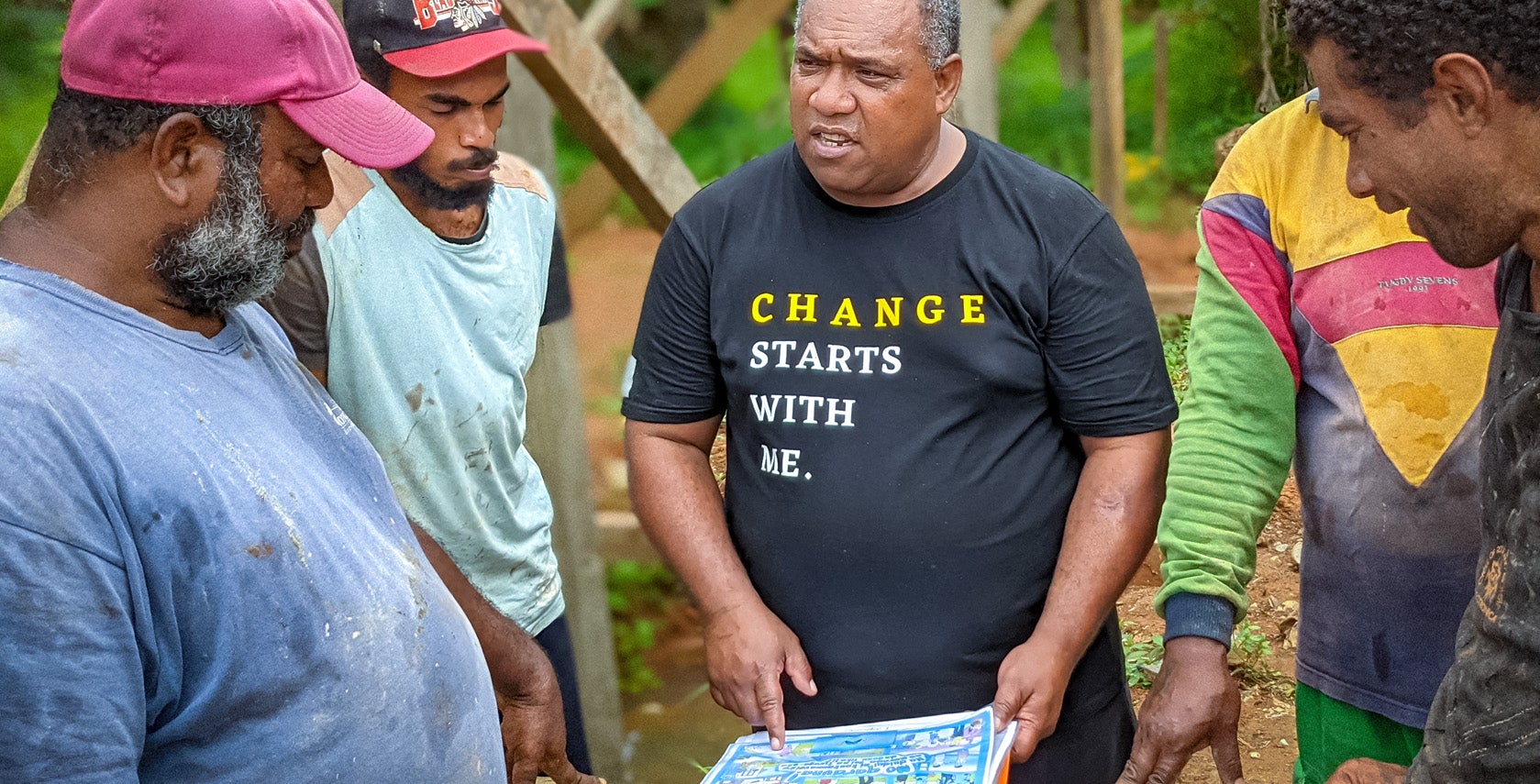Changing hearts and minds: Preventing Violence Against Women in Fiji’s Faith Settings
Date:
Author: Miho Watanabe*

Suva, Fiji — “When we eat, men get a bigger portion. If there’s something left inthe pot, women get that little portion. Even women took that as normal - that’s the way we were broughtup,” says Reverend Jone Tuiwaiwai, a pastor at the Anglican Church in Wailoku Parish, Suva.
“In the eyes of God, both men and women are given power. We are all equal. But how some people interpret theBible is misleading, giving men more power, which brings violence,” says Reverend Tuiwaiwai. “There arethings God gave us that we cannot change, but our social roles are not one of them. We can change them.”

Reverend Tuiwaiwai is one of many faith leaders and activists working to prevent violence against women and girlswith House of Sarah’s Preventing Violence Against Women in Fiji’sFaith Settings initiative, which started in 2018. A faith-based NGO, House of Sarah is supported by UN Womenthrough thePacific Partnership to End Violence Against Women and Girls (Pacific Partnership), funded primarily by theEuropean Union, the Governments of Australia and New Zealand, UN Women, and co-funded by the Fiji Women’s Fund (also supported by the AustralianGovernment).
“We had already conducted training in the community to prevent violence,” explains Reverend SereimaLomaloma, Founder and Trustee of the House of Sarah, and senior faith leader. “But violence continued becausewomen were the only ones taking up the learning, not the rest of the family. The whole family needed to change. Thewhole community needed to change. But it wasn’t happening,” she explained.
So, when the opportunity arose for House of Sarah to partner with UN Women to carry out the internationallyrecognised SASA! Faith approach to preventing violence againstwomen, developed by Uganda-based organisation Raising Voices, Reverend Lomaloma welcomed the chance. The SASA!Faithapproach has been proven to reduce levels of violence against women, and Fiji is one of many countries around theworld adapting and implementing it.

Using faith-based approaches to change social norms
The community-led initiative is being piloted in three Christian communities in Fiji: St Mark’s in Newtown; StMichael and All Angels in Matata; and St John the Baptist in Wailoku. The project aims to create a community thatrejects violence against women altogether and to prevent it from happening. Based on Biblical teachings, communitymembers influence each other to reshape the power imbalance between men and women that drives violence and transformsocial norms that accept violence as 'normal'.
“You first examine the Bible,” says Reverend Lomaloma. “You take people back to what the Bible saysabout men and women being created equal. When you’ve done that, you bring in gender issues, then the pennyjust drops.” says Reverend Lomaloma. Taking a fresh look at the scriptures is expected to change attitudes andmindsets, which in turn will result in changed behaviour.
During this first phase of the initiative, the project team supported church leaders to examine power dynamics inrelationships and reflect on how they could influence their faith communities. The team also worked with clergymembers to develop Bible-study programmes about human rights and unequal power relations between husbands and wives.This power imbalance is the root cause of violence in the home.
Learning about the biblical text through the project was the turning point for Tomu Dari, a community activist. His wife,Alisi Dari, introduced the initiative toTomu, who often used violence at home before the project began. “We are brought up to listen to the pastors,to follow God, and to obey His teaching,” explains Tomu. “So, when we learn the biblical texts, and whenthe pastor digs deeper into the teaching, we follow.”
As one of 37 community activists, Tomu now passes the teachings he has learnt on to other men in his community– though it’s not always easy. “When I see men on the road, I invite them for tea. When I see menhaving kava [a traditional Fijian drink], I buy them one. That’s how we start the conversation. You try threeor four times, and they finally listen to you. It takes time.”
The project aims to reach the same people repeatedly and using the SASA!Faith toolkit, filled with thought-provokingquestions and teachings from the Bible, walk them through a step-by-step process of attitude and behavioural changeover four years.
No longer abusive himself, Tomu now creates waves of influence among the men and boys in his community. “If Ican change, they can. I spread the message so that they can spread the message to others. And I’m proud to bea part of that change.”

Empowered to seek help
As part of the initiative, the prevention work is complemented by providing access to essential services for womenand girls experiencing violence. “When the project was introduced in churches and our community, women wereenlightened. For the first time, women were empowered to take the first step to seek help,” exclaims Fane Mara*, a member of Sarah Carers, small groups of dedicated women who have undergone training to help women in theircommunities at risk of, or who are experiencing, gender-based violence.
Sarah Carers act as first points of contact for those wanting information on available services and help survivors ofviolence gain access to essential services through referral. “I serve anyone who comes to my doorstep,”confirms Mara. “I always give them options [of services]. I don’t decide for anyone. She decides.”
“God calls women and men to leadership. God calls each one of us,” preaches Reverend Lomaloma. “Inthis project, it is the community themselves who make the change.”
Following a positive evaluation, thePreventing Violence Against Women in Fiji’s Faith Settings initiative was recently recommended tocontinue beyond its 2022 end date to ensure sustainability of the new knowledge and practices that it isintroducing to Fijian communities. Through strategic partnerships with faith leaders, and those in theeducation, sport and employment sectors, UN Women has been working to prevent violence against women and girlsin Fiji.